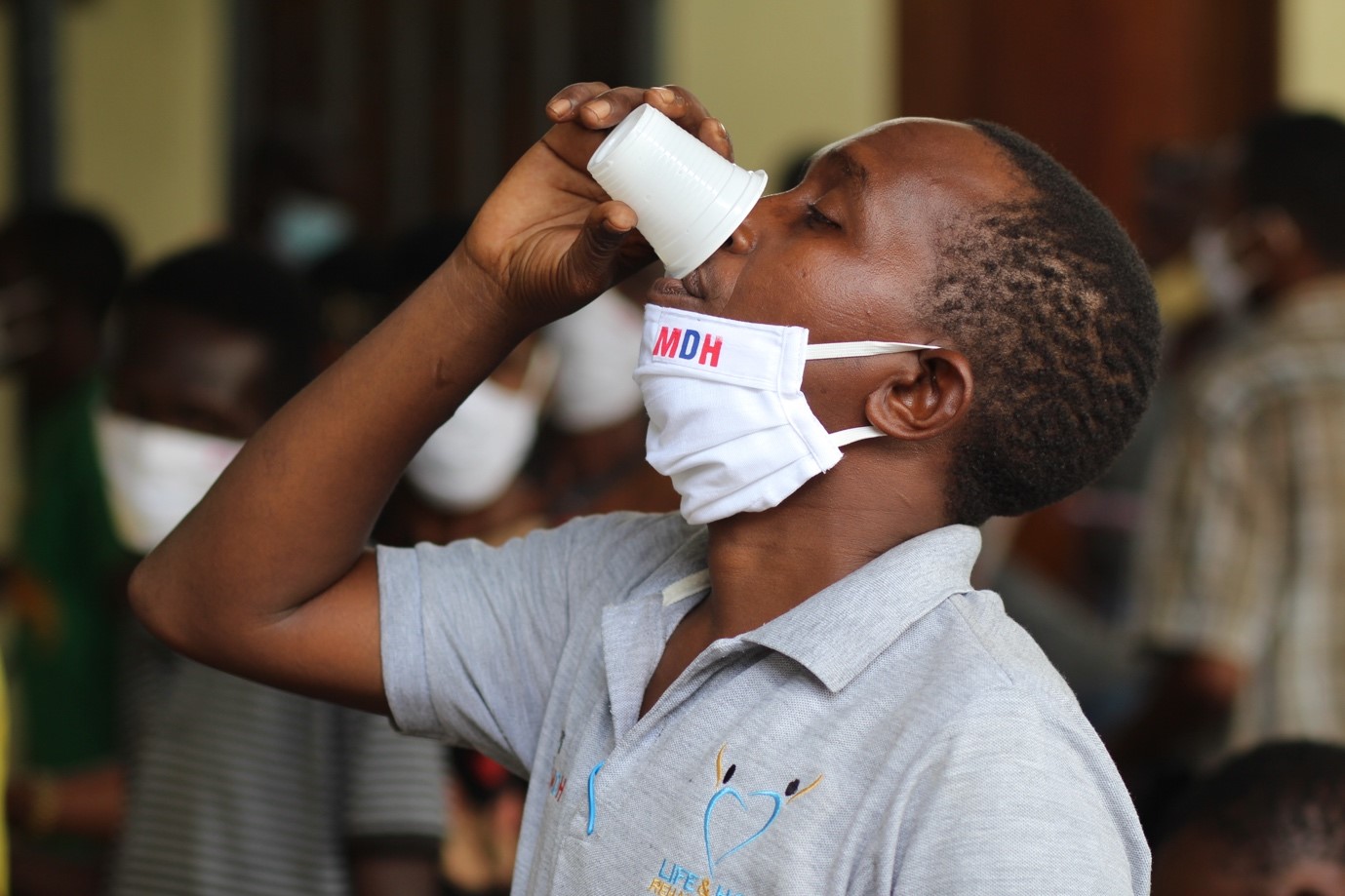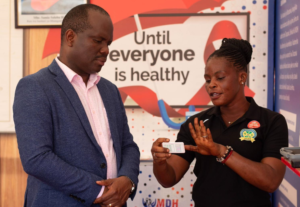By Said Mkwizu and Zacharia Mlacha
Thabiti Omary Jaza taking his methadone at Mwananyamala regional hospital, Methadone is a part of a treatment program for an addiction to heroin or drug abuse
Dar es Salaam, Tanzania – Thabiti Omary Jaza is a 42-year-old man who started to engage in drugs abuse 19 years ago when he got a job outside the country. He was tempted to try heroin while working at one of the drug dealers where he was tasked to pack heroin for drug dealers. Consequently he got addicted after some times. His heroin addiction took priority over everything he did in his life thereafter.
Following drug addiction, his work performance dropped and he was fired by his employer. He then started to engage with street robbers to get money for the drugs. In 2003 he was arrested and deported back to Tanzania.
The UNODC, 2016 indicates that over 28 million people in Africa are using illegal drugs, this is due to easy availability of the illegal drugs and drug trafficking activities. Common illegal drugs used in Africa include; khat, heroin, cocaine and cannabis. Youth have been identified as the most vulnerable group and highly affected.
Drug abuse results in economic, social and health effects including; mental retardation, Stroke, lung diseases, heart diseases and Human Immunodeficiency Virus (HIV), disorders in adolescence, young adults and the general public. Several awareness and initiatives programs were done by the government and private sectors.
With support from the U.S. President’s Emergency Plan for AIDS Relief (PEPFAR) through the Centers for Disease Control and Prevention, Afya Kwanza project led by Management and Development for Health is working with the Ministry of Health and President Office Regional Administration and Local Government to support implementation of Medically Assisted Therapy (MAT) integrated health service delivery model in three MAT Clinics in Dar es Salaam (Muhimbili National Hospital, Mwananyamala Regional Referral Hospital and Temeke Regional Referral Hospital).
The clinics support treatment against substance use disorders such as heroin addiction and other co-morbidities that PWIDs/PWUDs suffer from using the substance of abuse
Jaza’s dream was to live in South Africa and never wanted to come back to Tanzania. He later on travelled back to South Africa where he stayed for 17 years and continued to engage in drug abuse.
In 2020, Jaza returned back in the country where he met with his old friend who was working at one of the civil social organization (CSO) that works in partnership with Mwananyamala Regional Referral Hospital in Kinondoni District. His friend’s responsibility was to recruit people who are using drugs and have been addicted, those identified were linked to Medication-Assisted Treatment (MAT) clinics.
Jaza was afraid that whoever he spoke with would be shocked by his situation and disgusted by his story, Jaza decided to disclose his information to his old friend that he was addicted to drug abuse, his friend was addicted too but at that time he had already stopped and was on recovery stage.
His old friend counselled and convinced him to enroll at MAT clinic at Mwananyamala hospital. Initially, Jaza hesitated but later on agreed to join the MAT clinic on 21st October 2020 and stopped using drugs.
“When I came home and I decided to find a therapist for treatment, I wanted to stop using the drugs but I didn’t know how to stop, fortunately, I met with my old friend who helped me to register at one of the MAT clinics for recovery,” narrated Jaza.
By October 2021, Jaza was among 1,320 clients recruited at the Mwananyamala MAT clinic. Jaza continued well with the treatment and was taking Methadone which is provided as a daily Directly Observed Therapy.
After being trusted of using the medications he was selected to lead the Civil Society Organisation known as ‘Life and Hope’. Through these improvements and opportunities, Jaza was able to establish himself and increase his income.
“The road to recovery has been long and challenging, but with support from health care providers I managed to recover, I am grateful for the support and counselling, Now I am independent and married to my partner who knew me since when I was on drugs,” stated Jaza who is now a father and husband living with a happy family, drug-free. He is grateful for the intervention as he is now able to help others who are in a similar situation.


